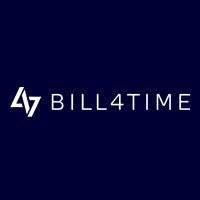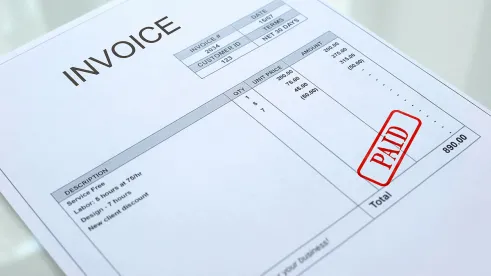The billable hour is the tried-and-true law firm billing standard for the legal industry, but new pricing models are beginning to emerge. Fixed fees are one option that’s becoming increasingly popular among law firms. With this pricing model, both the lawyer and client agree to the total cost for legal services up front, giving clients peace of mind and transparency throughout the process.
Continue reading to gain an understanding of the types of fees and pricing structure options law firms can implement.
What Are Fixed Fees?
Fixed fees, also called flat fees, require the client to pay a predetermined fee in exchange for a specific legal service. Fixed fees are often used for straightforward, repetitive services like drafting a will, lease transactions, or EEOC responses.
Why Do Law Firms Offer Fixed Fees?
Offering fixed fees has benefits for both the client and the law firm. Hourly billing can quickly become unaffordable, but fixed fees offer transparency in the billing process and help clients feel in control of their purchasing decisions.
Having a clear understanding of the costs of legal representation also allows clients to consider the expense vs. winning or losing the case.
For the law firm, fixed fees eliminate the time spent on explaining the billing amounts, processes, and charges. Lawyers are free to focus their resources on delivering legal services instead of reviewing billing and tracking billable hours.
Types of Fee Arrangements
Billing by the hour is still a common practice in most law firms, but it doesn’t have to be. There are plenty of alternative fee arrangements, like the fixed or flat fees we’ve previously covered, that can be beneficial for different firms and clients.
Capped Fees
Capped fees use the traditional hourly billing model with an agreed-upon maximum cost or cap for the matter. This arrangement gives clients confidence and lowers their financial risk because they know that the fees won’t exceed what they can afford.
Blended Fees
Blended fees mix hourly rates with fixed fees. The firm charges one average hourly billable rate for work on a client’s case, regardless of which attorney completes the work. This averages the lower cost of an associate with the higher cost of a partner or senior partner, ensuring clients won’t have an exorbitant surprise bill because a senior partner did most of the work.
Conversely, this arrangement could mean that a client will pay higher fees for newer lawyers, which could put them at a disadvantage.
Performance Incentives
Lawyers are committed to achieving the best possible outcome for clients, though it may not always happen. Performance incentives include a predetermined reward for achieving a favorable result as additional motivation.
With this arrangement, lawyers receive an agreed-upon amount no matter the case outcome. But if they win the case and meet the predefined criteria, they may be entitled to an additional payment.
Payment Plans
Payment plans help clients access legal services who may be unable to afford them otherwise. Clients may be set up with a plan that requires smaller monthly payments until they reach the full bill amount.
These payment plans are mutually agreed upon in advance, giving the client legal representation and the firm consistent revenue over time. It’s best to have clients pay a bill in full, but well-structured payment plans are a solution that provides a better client experience.
Sliding Scale Fees
Affordability is a concern for many clients and may influence their decision to choose one firm over another — or access legal services at all. Sliding scale fees are based on a client’s ability to pay, giving them lower hourly or fixed fees that are more affordable.
Unbundled Legal Services
Some clients may struggle to pay the expenses for the full scope of legal services. Unbundled legal services address this by providing affordable legal help in a limited scope and leaving the client to handle some of the work themselves.
For example, divorce lawyers may use unbundled legal services to help the client prepare court documents.
Contingency Fees
Contingency fees are often used in complex or expensive cases, such as drug injury lawsuits or medical malpractice cases. Lawyers are paid a percentage of the client’s compensation if the case is successful.
Subscription Fees
Subscription-based fees give the client a set, recurring monthly fee for legal services, much like a subscription to an entertainment service.
With subscription plans, clients have affordable, flat monthly fees for unlimited advice, document review, and similar services. Law firms benefit from predictable, consistent work and revenue with a strong client relationship.
Common Law Firm Payment Methods
The legal industry traditionally accepts checks and cash as payments for legal services. These may be paid in person or mailed, which creates numerous bottlenecks for the firm in collecting payment.
With this traditional payment model, law firms must bill the client, wait for the check in the mail or the in-person cash payment, and then go to the bank to deposit it. This billing process creates hurdles for the client to pay their invoice which can inadvertently increase unpaid invoices and collections.
While it’s acceptable to accept cash or check payments in some instances, clients want more efficient and convenient electronic payment methods like credit cards, debit cards, online payment systems, and even cryptocurrencies. Law firms that offer more payment methods make it easier for clients to pay, improving the client experience, and getting bills paid faster.
What is Legal Billing Software
Legal billing software allows law firms to easily manage the intricacies of their billing, invoicing, and accounting processes. The best legal billing software is built into your legal practice management platform allowing for greater insight into your billing.
With native online payment processing solutions, your firm can offer clients a convenient and secure online payment portal with low transaction rates, no third-party services or integrations, and 100% compliance with IOLTA, ABA, and state bar guidelines for ePayments. You can even create custom payment links to include on your invoices so clients can complete their invoice payments in just a few clicks.
By simply offering online payments at your law firm, you can experience a 22% decrease in accounts receivable.
Embrace Alternative Fee Arrangements
Both law firms and clients can benefit from fixed fee arrangements or other alternative fee arrangements beyond billable hours. Law firms can provide legal services more efficiently and provide transparency into the billing process for clients. With legal billing software, you can easily offer multiple payment methods, like online payments, that can increase your law firm’s profitability while meeting the client’s needs.



 />i
/>i

